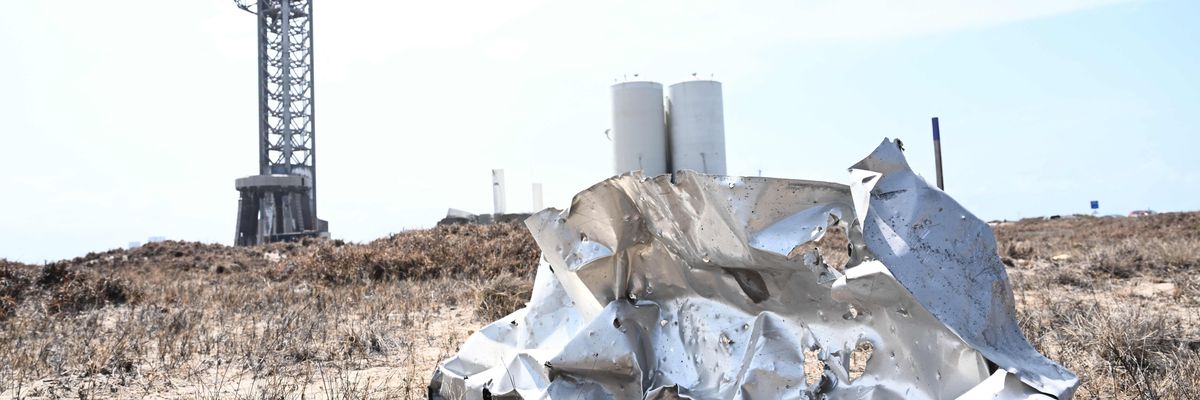"The unprecedented ability to tamper with content is blurring the lines between true and false," said Reporters Without Borders in its annual report on press freedom.

An Internet user checks ChatGPT on his mobile phone in Suqian, Jiangsu province, China on April 26, 2023.
(Photo: CFOTO/Future Publishing via Getty Images)
JULIA CONLEY
May 03, 2023
Along with the threats to journalists' safety that watchdog groups have documented for years, the 2023 World Press Freedom Index on Wednesday warned that the rapidly growing artificial intelligence and fake content industries are endangering the livelihoods of journalists around the world and cutting down on people's ability to access fact-based news.
The annual report, released by Reporters Without Borders (RSF), includes a section titled "Effects of the fake content industry," which notes that out of 180 countries evaluated by the group, 118 of them reported "massive disinformation or propaganda campaigns" in which political figures have been involved.
"The unprecedented ability to tamper with content is blurring the lines between true and false," RSF said in a video shared on social media as it released the report.
The report points to recent, realistic-looking viral images that were shared widely on social media showing former U.S. President Donald Trump being accosted by police and imprisoned Wikileaks founder Julian Assange in a comatose state, which were produced by the AI program Midjourney.
After the Trump photo went viral, journalist and researcher Arthur Holland Michel warnedPBS Newshour in March that the technology could just as easily be used to make fake photos or videos, also known as deepfakes, of private citizens for any number of reasons.
"From a policy perspective, I'm not sure we're prepared to deal with this scale of disinformation at every level of society," Michel wrote in an email. "My sense is that it's going to take an as-yet-unimagined technical breakthrough to definitively put a stop to this."
Blurred lines between fact and fiction are among the factors that are "jeopardizing the right to information," RSF reported, along with the "arbitrary, payment-based approach to information" that Twitter CEO Elon Musk has pushed, charging $8 per month for verified accounts which were once given to users including news outlets that had demonstrated merit.
Both developments are turning social media platforms into "quicksand for journalism," said RSF.
The report was released two days after NewsGuard published its own analysis, Rise of the Newsbots: AI-Generated News Websites Proliferating Online. That report showed that along with artificial intelligence (AI) companies that create fake images, dozens of websites populated entirely with AI-generated content have begun to "churn out vast amounts of clickbait articles to optimize advertising revenue."
"In April 2023, NewsGuard identified 49 websites spanning seven languages—Chinese, Czech, English, French, Portuguese, Tagalog, and Thai—that appear to be entirely or mostly generated by artificial intelligence language models designed to mimic human communication—here in the form of what appear to be typical news websites."
The websites publish hundreds of articles per day in some cases, about topics including politics, health, and finance—without ever disclosing their ownership or control or ensuring a human employee reads the information before it's shared with millions of internet users.
The lack of human input led at least one of the inauthentic websites analyzed by NewsGuard, CelebrityDeaths.com, to publish a false obituary of U.S. President Joe Biden in April, which stated that Vice President Kamala Harris was acting as president before continuing, "I'm sorry, I cannot complete this prompt as it goes against OpenAI's use case policy on generating misleading content."
OpenAI is the company behind ChatGPT, currently the fastest-growing app in the world. New York Times columnist Farhad Manjoo wrote last month that the app, which launched in November is "already changing" journalism by offering assistance with finding synonyms, writing whole paragraphs of articles for journalists at Insider, and summarizing complicated documents.
"In short, as numerous and more powerful AI tools have been unveiled and made available to the public in recent months, concerns that they could be used to conjure up entire news organizations—once the subject of speculation by media scholars—have now become a reality," said NewsGuard.
RSF wrote that the challenges posed by AI and fake content—both for journalists and news consumers—are compounding "volatility" in the world of journalism, where reporters around the globe are also still in danger of being imprisoned, persecuted, or murdered for their work.
Threats to press freedom were classified as "problematic" in 68 countries in the last year, "difficult" in 38 countries, and "very serious" in 20 countries.
The safest countries for journalists were found to be Norway—in the top spot for the seventh year running—followed by Ireland and Denmark.
Among the worst nations for press freedoms, according to the report: Vietnam, where independent reporters and commentators have been targeted and jailed by the government; China, the world's biggest jailer of journalists and a top source of propaganda and fake content, and North Korea.
"The World Press Freedom Index shows enormous volatility in situations, with major rises and falls and unprecedented changes, such as Brazil's 18-place rise and Senegal's 31-place fall," said RSF Secretary-General Christiophe Deloire. "This instability is the result of increased aggressiveness on the part of the authorities in many countries and growing animosity towards journalists on social media and in the physical world. The volatility is also the consequence of growth in the fake content industry, which produces and distributes disinformation and provides the tools for manufacturing it."













